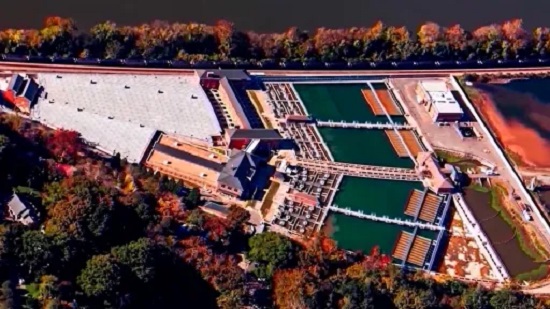RICHMOND, Va. — Virginia’s Democratic lawmakers are expressing frustration and concern following the Department of Homeland Security’s (DHS) decision to cancel a $12 million FEMA grant intended for much-needed upgrades to Richmond’s aging water treatment plant infrastructure. The funds were initially awarded to the city in August 2023, sourced from the 2022 fiscal year, but had not yet been disbursed.
The grant was designated to address long-standing issues at the Richmond Water Treatment Facility, which has been plagued by structural flaws and aging design for years. The proposed upgrades were seen as critical in making the facility more resilient to severe weather events and the increasingly frequent 100-year floods, which threaten both the region’s water supply and its residents’ access to clean drinking water.
In a letter sent to DHS Secretary Kristi Noem, U.S. Senators Mark Warner and Tim Kaine, along with Representatives Bobby Scott and Jennifer McClellan, all Democrats from Virginia, urged the federal agency to reverse its decision and release the grant funds. The lawmakers emphasized the urgency of the project, highlighting the vulnerability of the region’s residents, businesses, and key infrastructure. Without the funding, they warned that future storms could lead to widespread contamination and disruptions in service, which would disproportionately impact Richmond’s most vulnerable communities.
“This grant is not just a matter of upgrading infrastructure—it’s about protecting public health and ensuring that Richmond residents have safe and reliable access to drinking water,” said Sen. Warner in a statement. “Canceling it undermines efforts to safeguard communities from the effects of climate change and extreme weather.”
Rep. McClellan echoed these concerns, stressing that the decision was rooted in a shortsighted failure to recognize the essential need for modernized infrastructure. “The Trump Administration’s neglect of this issue led to a devastating water crisis in January when Richmond’s water plant failed during storms, cutting off access to drinking water throughout the region. Without these upgrades, we are setting ourselves up for future contamination and outages,” she said.
Sen. Kaine, visibly frustrated by the cancellation, also voiced his disapproval, calling the DHS decision “outrageous.” He reiterated that the grant had already undergone a thorough review process and was seen as essential for the community’s long-term resilience. “This funding should be allocated without delay to ensure Virginia communities are prepared for the next extreme weather event,” Kaine added.
The decision by DHS has raised questions about the broader administration’s approach to infrastructure funding. FEMA spokespersons criticized the program, suggesting it had become overly politicized and was no longer focused on helping Americans affected by natural disasters. However, the agency did not provide specific details as to why the Richmond grant was singled out for cancellation.
The controversy has also drawn attention from Republican lawmakers, including Rep. Rob Wittman, who represents Virginia’s First Congressional District. Wittman, while not directly involved in the letter to DHS, expressed strong support for securing the funding. “The Richmond water crisis was devastating. Our community deserves safe, dependable water systems, and these necessary upgrades can’t wait any longer,” he said. “I will be speaking with the administration to ensure this urgent need is addressed.”
Despite the vocal opposition from Virginia’s lawmakers, it remains unclear whether DHS will reconsider its decision. With the region’s water treatment infrastructure under significant strain and the looming threat of future weather-related disruptions, the cancellation of the grant has sparked a heated debate over the prioritization of federal funding for infrastructure projects.
As Richmond waits for a resolution, the uncertainty surrounding the future of the water treatment plant upgrades has left many in the community concerned about the resilience of their essential services in the face of mounting environmental challenges.











